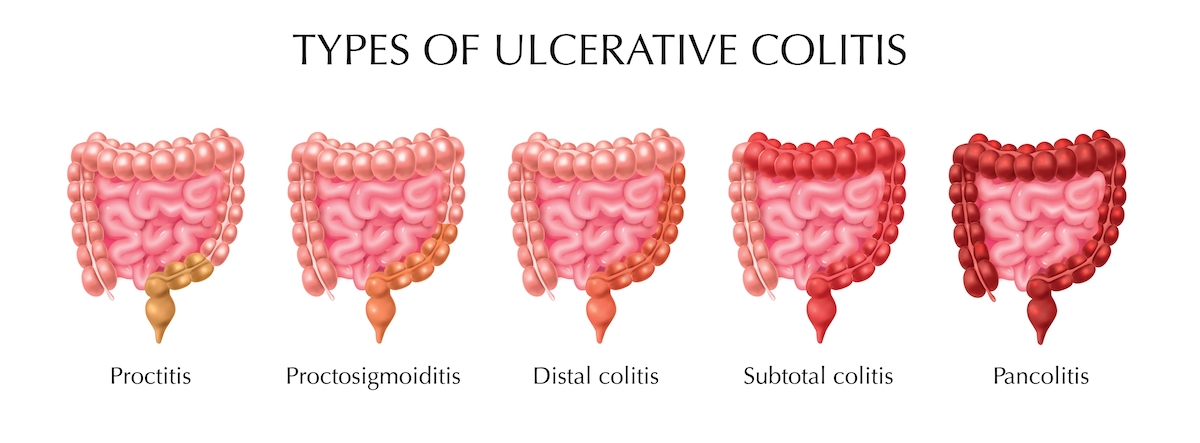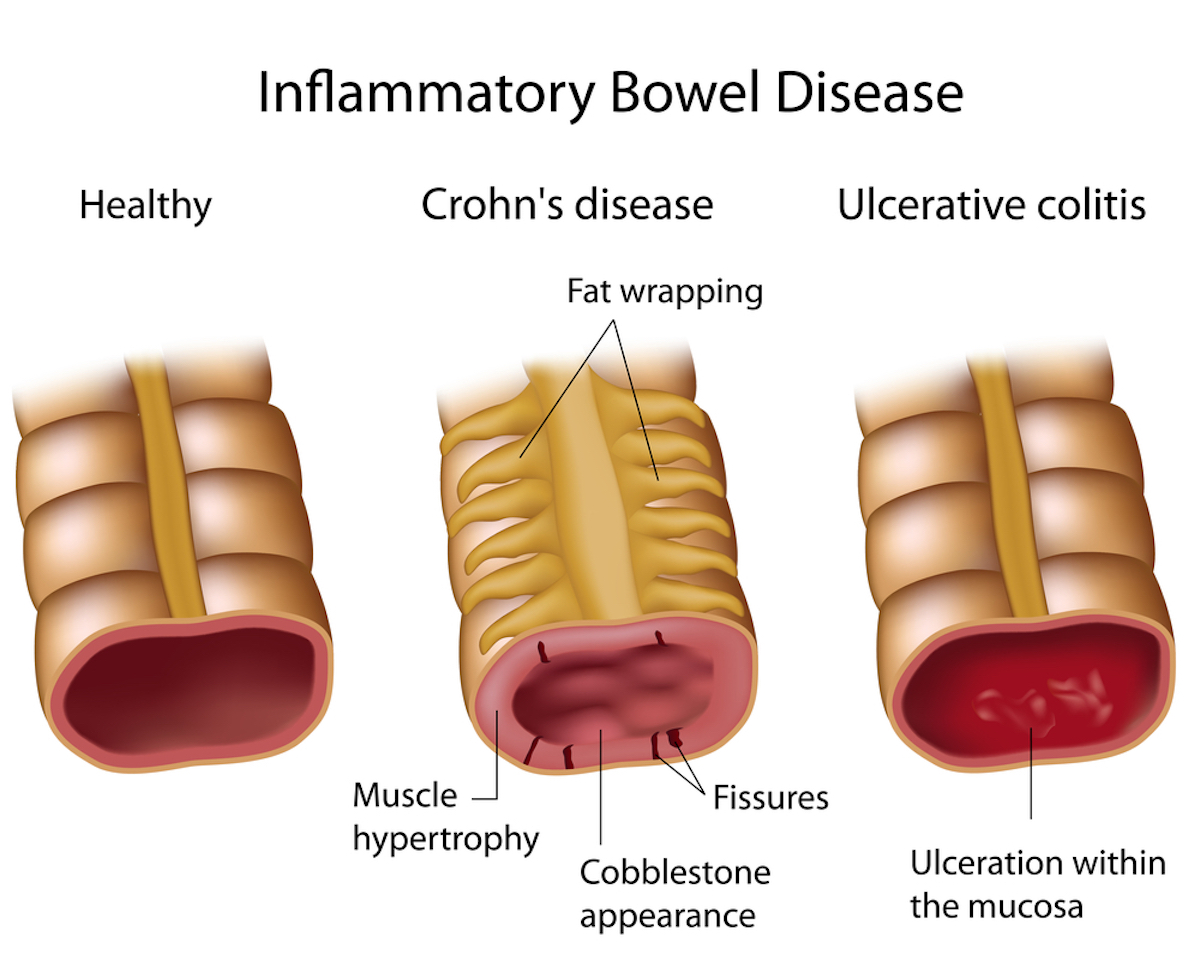Most people think of Crohn’s disease if someone tells them, they suffer from bowel disease, but there are more inflammatory bowel diseases (IBD). One of them is called ulcerative colitis (UC). Together they are the most common types of inflammatory bowel disease in North America and Europe and affect about 1 in 250 people. Medical research estimates that about 6 to 9 hundred thousand people in the United States alone suffer from this chronic disease. Unfortunately, UC is chronic, which means there is no cure. This makes it important to diagnose the disease in its stages because the sooner someone starts treatment, the better symptoms can be managed.

What is Ulcerative Colitis?
UC is a bowel disease that causes irritation & infections, like open sores, in your large intestine. This often starts in the rectum and may spread to the rest of the colon. However, this may vary per case. Sometimes the inflammation doesn’t spread to other parts of the colon and in other cases, the inflammation is spread all over.
Types of Ulcerative Colitis
The medical term for when the inflammation is just in the rectum and lower part of the colon is ‘ulcerative pancolitis.’ This is called a mild form of UC. When the entire colon is infected we call this extensive colitis or pancolitis and when only the left side of the colon is affected, it’s called distal or left-sided ulcerative colitis. Pancolitis is considered a severe form of UC. Also, the location of the inflammation in the large intestine plays a big part in how severe this bowel disease is, but this also varies per person. Someone can have severe symptoms, because of severe inflammation in the lower part of the colon and experience mild to moderate symptoms in the rest of the intestine, because there is only a little bit of inflammation.
Anyone can develop ulcerative colitis as there is no precise cause. Medical researchers suspect that UC is an overreaction of the immune system. As it’s the immune system’s job to protect the body. In some cases, it tries too hard and sees the colon as a dangerous thing that needs to leave the body. This causes inflammation and possible tissue damage in the rectum or other parts of the large intestine. Someone is more at risk for UC when: he or she has a close family member that suffers from inflammatory bowel disease, is between the ages 15 and 30 or 60+, is Jewish, eats a high-fat diet, or uses NSAIDS medication, like ibuprofen, frequently.

Symptoms of Ulcerative Colitis
People suffering from UC often experience symptoms in waves – also called flare-ups. This means that the symptoms are (much) worse than normal. When someone is in remission, someone experiences mild to no symptoms. Early warning signs of ulcerative colitis are:
- Diarrhea
- Urgent bowel movements
- Abdominal cramping
- Tiredness
- Nausea
- Weight loss
- Anemia
Unfortunately, symptoms gradually get more severe, and other symptoms emerge. These include blood, mucous, or pus in your stool, severe cramping, fever, skin rashes, mouth sores, joint pain, red and painful eyes, liver disease, and the loss of fluids & nutrients.
Are There Any Treatment Options?
When you suspect that you yourself or a loved one is suffering from UC. It’s important to visit your professional healthcare provider. The doctor will examine you and after a physical exam, do some tests, like blood work, stool samples, and imaging. Also, they refer you to a medical specialist (gastroenterologist) for a colonoscopy and sigmoidoscopy. Once the right diagnosis is made, the gastroenterologist can set up the right treatment. This is often medication to treat the inflammation, the goal is to maintain in remission as long as possible. Medication options that your gastroenterologist possibly prescribes are:
- Aminosalicylates, to treat mild to moderate forms of UC
- Corticosteroids, to treat severe forms of UC
- Immunomodulators, to calm the overreacting immune system
- Biologics, to treat moderate to severe forms of UC
- Janus kinase (JAK) inhibitors, stop your body enzymes from triggering inflammation
If medication isn’t working, or you get severe complications your healthcare provider will advise surgery. This happens in approximately 30% of the cases. Ulcerative colitis is a serious condition with severe complications, so contact your professional healthcare provider when you suspect you’re suffering from this! The proper treatment can really help you feel better. For more information on ulcerative colitis and possible treatment options, continue your online search here:

